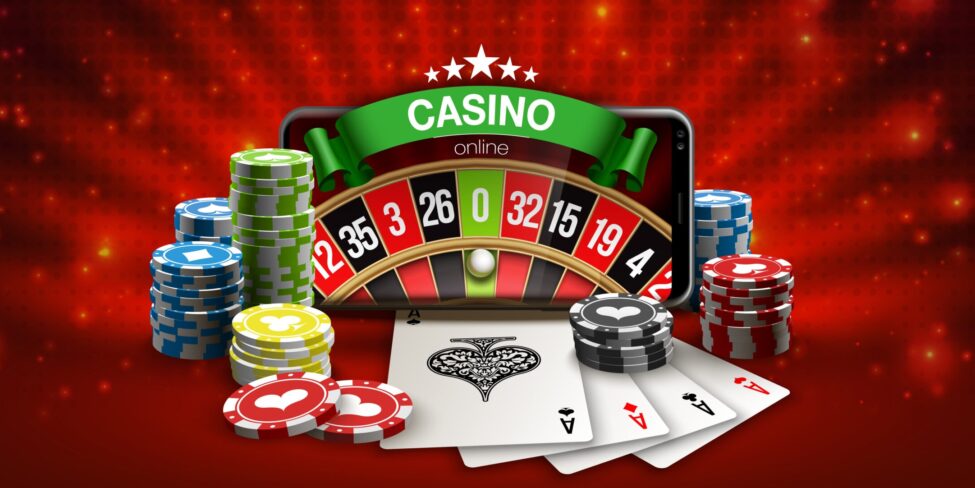
Casino games have enthralled gamblers for decades, drawing them into a realm of thrill, fortune, and prosperity. From the sparkling lights of video slots to the tactical intensity of card tables, these activities offer a distinct mixture of amusement and exposure. However, below the shiny exterior of this glamour and glamour lies a complex connection of math that determines every conclusion and action made within the gaming hall.
Grasping this connection between casino games and math merely enhances the player’s journey but may also help players make informed selections. Whether you are a casual punter or a avid fan, recognizing the mathematical principles at play can provide valuable knowledge into likelihood, odds, and approaches, ultimately affecting how one tackles these games of chance.
Statistical Likelihood in Betting
In the sphere of gambling activities, statistical probability plays a crucial role in assessing outcomes and guiding player choices. Every game has a unique set of regulations and a particular likelihood model that influences its mechanics. For example, in activities like roulette, players must grasp the chances of hitting a specific digit or shade. The likelihood of specific occurrences occurring can be assessed, and this understanding can greatly influence wagering tactics.
Gambers also need to be informed of the casino advantage, which is the mathematical advantage that gambling establishments hold over gamblers in the long run. This edge differs across different games. In 21, expert players can use tactics to reduce the casino edge to as little as 1 %, while in games like slot machines, the house advantage can be much higher. Comprehending the house edge allows players to make wise decisions about which activities to play and how much to bet.
Additionally, probability is fundamental in the principle of danger versus reward in gambling. Each wager carries a particular danger factor, and gamblers must consider the possible return against that risk. Activities like poker require players to not only compute the odds of their own showing winning but also to assess the likelihoods of their opponents’ hands. By utilizing mathematical principles to their gameplay, players can boost their chances of winning and participate more strategically in the thrilling realm of gambling activities.
Expected Worth in Gambling Games
When talking about casino games, one of the fundamental concepts rooted in mathematics is the anticipated worth. This statistical metric assists players grasp the potential results of their bets over time. In simple terms, anticipated value (EV) calculates the average amount a gambler can expect to gain or lose per bet if they were to play the activity many times. Each activity has its own EV, influenced by the probabilities and the casino advantage, which indicates the advantage that the casino holds.
For example, consider a activity like roulette. The expected worth can be derived based on the specific bet placed. If a gambler bets on a individual number, the payout is 35 to 1, but the actual odds of success that wager are 1 in 37 (in European roulette). https://rikvip.osaka/ This leads in a detrimental expected value, showing that, on average, gamblers will incur a loss money over time when playing this type of wager. Understanding this concept allows gamblers to make better informed decisions about which activities and bets may be less advantageous.
Additionally, the exploration of anticipated worth can lead to improved bankroll management. Gamblers who comprehend the mathematics behind their games are often able to set practical goals. By acknowledging their possible deficits and gains, they can adjust their playing strategies accordingly, which may enhance their overall gaming experience overall. As a result, anticipated value serves as a crucial resource for both beginner and seasoned players to steer through the often volatile nature of casino activities.
Approaches and Odds: The Mathematics Behind Winning
In gaming establishments, grasping the chances is crucial for participants looking to boost their opportunities of success. Each activity has its own unique set of odds that establish successful outcomes, and these numbers are often presented in the rules of the game guidelines or payout tables. For example, in games like 21, participants can boost their probabilities through tactics such as card counting, which depends on arithmetic concepts to gain an advantage over the house. By familiarizing themselves with the chances, participants can make more educated determinations on when to place bets and when to quit.
Moreover, the principle of average value plays a significant function in casino strategies. Expected value determines the mean outcome of a bet over the long run, allowing gamblers to judge whether a certain bet is justifiable taking. For example, slot machines have a specific payout percentage, which can suggest the average payout a player can anticipate on their bets. By opting for games with greater average outcomes, participants can lessen the house advantage, enhancing their future winnings in the long run.
In conclusion, successful players often adopt a mix of luck and math strategy to boost their gaming experience. While chance can’t be controlled, managing a staking plan based on calculative ideas can lead to more positive results. By employing techniques such as bankroll management and choosing games, participants can apply math to handle the unpredictable nature of gambling activities, making the most of their investments and resources at the tables.